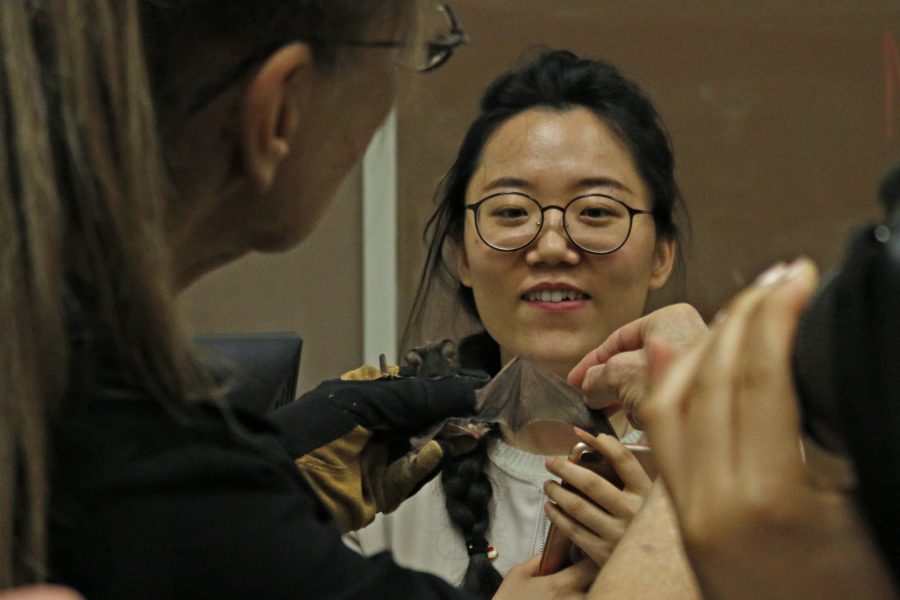A handful of students rushed into a cluster, phones raised and cameras aimed at a single gloved hand cradling a wriggling creature no bigger than a mouse and covered in a kiwi-like fuzz. They were vying to catch an up-close glimpse at a famous, elusive Austin resident: a Congress Avenue Bridge bat.
But BATX, a Campus Environmental Center project team, did not haul three species of live bats into the Art Building merely to dazzle. The project’s Wednesday workshop sought to dispel centuries-old bat misconceptions.
“Misinformation is one of the biggest threats to bats,” said Dianne Odegard, co-founder of Austin Bat Refuge. “Bats do not have a rabies carrier status, and they’re more closely related to hoofed animals and whales than they are rodents.”
Odegard discussed diverse bat species ranging from the large flying fox bat, with its 4-foot average wingspan, to the tiny bumblebee bat, averaging no more than 1.2 inches in length.
She said of 1,400 species, only three types of bats drink blood.
“Bats serve humans in many forms,” Odegard said. “Seventy percent of bats in the world eat insects, making them pest-removers. Fruit bats dispense seeds and aid forest regrowth, while nectar drinking bats are natural pollinators.”
Despite their ecological role, Odegard said bats are threatened by habitat loss as a result of urbanization. Austin’s laws only protect bats dwelling in places where humans do not live or work.
UT’s BATX wants to see the tides change. The project aims to help conservation efforts by introducing the UT community to bats and their importance in the ecosystem.
Jennifer Tucker, BATX founder and linguistics senior, said she believes that education is the most powerful way to advocate for conservation.
“We call ourselves Bat City, and yet there’s no bat research happening at UT,” Tucker said.
Tucker became involved with bats when she was still active duty in the Air Force. She said she merged her need for volunteer work with her love of bats, prompting her to submit a project proposal to UT’s Green Fee, a competitive grant for sustainable projects.
Not all portions of her project were funded by Green Fee. In the future, Tucker said she hopes to establish a bat house on campus and continue fostering connections between students and bats.
“When you meet a bat in person it opens up your awareness of how fascinating they are, and how much more valued they should be,” Tucker said.





















